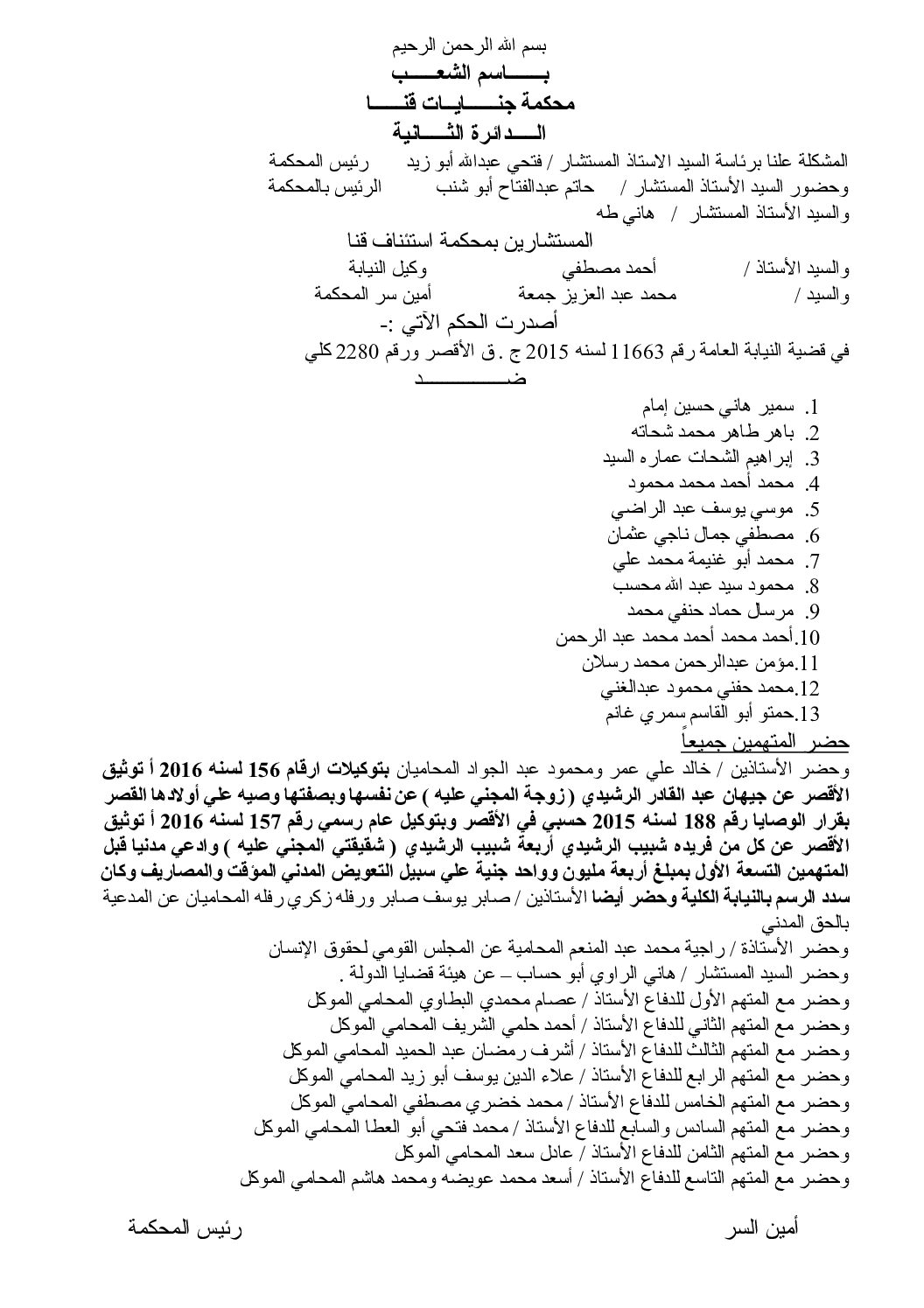Labor rights | Workers Demand Return of their Five Companies to Public Sector, to be Operated and Compensated

“Workers will make their voices heard … our factories will not be closed,” chanted workers in a press conference for the workers of the companies retrieved to the Public Sector. Under the title “We Want to Work…We Want to Increase Production” ECESR organized a press conference in coordination with “Towards a Fair Labor Act” Campaign.
Statement of workers in five companies
The Press Conference was attended by five companies: Tanta Flax, Steam Boilers, Simo Paper, Ideal, and Bohira Partnership. In the conference, the workers released and distributed a statement in which they stressed on their confrontation to the sale of public sector companies and the privatization policy, which led to the emergence of monopolies in the sectors of steel and cement for the benefit of business tycoons. This process, the statement said, destroyed the strategic industries, dismissed thousands of workers under the guise of early retirement, reduced wages, and put workers at the investors’ mercy.
The statement also said that the workers were determined to implement the court rulings handed down in favor of returning the corporates to the public sector, operating them and compensating workers affected by the privatization process. It called for: 1. halting privatization and looting policies; 2. abiding by court rulings; 3. repealing law 32/2014, which prohibits a third party from challenging the corporate sale contracts; 4. promulgating an Act, instead of the above-mentioned one, that allows expeditious decisions to be made in the cases brought before the State Council; 5. pumping investments to run stalled and stumbled companies, and paying workers the dues in arrears.
The Conference came after the final judicial rulings were handed down more than a year ago in favor of returning the privatized companies and their workers to the public sector. It is noteworthy that the successive governments after the January revolution didn’t abide by those verdicts and even put obstacles in front of workers.
Conference procedures
The conference began with a speech by Hisham Fouad, member of Towards a Fair Labor Act campaign and conference facilitator. He explained the campaign’s role in formulating an alternative draft to the current labor law in order that it may restore the stolen labor rights. He pointed out to ECESR’s role in defending workers through lodging many lawsuits against the corrupt contracts entered into by the State with investors. They lead, he said, to the sale and privatization of a large number of companies that ended in ruins after dismissing workers, who fought many struggles to stop this attack. They defended their lives and the interests of the country against corruption and waste of public money, he added.
Representing Tanta Flax Company, Jamal Othman said: “we have only one demand; we want our company to operate once again. Workers are in a puzzle for 6 years; they are torn up between the verdicts handed down in their favor and the intransigence of the State in terms of implementing those verdicts. Investment Minister told us that if he implemented the Tanta Flax verdict, he would be forced to implement the other verdicts handed down in favor of 6 similar companies, which was impossible for him to do.”
Speaking on behalf of Simo Company for Paper, Osama Ali said: “company machines were worn and torn 14 years before the sales process in order to sell them at the cheapest price. Workers have due payments that have not been received so far, including the salaries of eight months due to be paid.”
Speaking on behalf of Ideal Company, Sami Saeed said that the company with its several branches, exhibitions and land were sold for LE 236 million, which is equivalent to LE 500 per square meter of land and equipment. After purchasing the company, the investor closed two factories and dismissed 3,500 workers out of eight thousand, he added. He pointed out to the pattern followed in all sale processes: 1. selling a company; 2. wearing and tearing machines; 3. dismissing workers; 4. liquidating the company and turning it into a new investment project with the benefits of site and land.
Khaled Ali: workers have the right to run their factories
In summing up the conference, the labor lawyer Khalid Ali emphasized that he was not against the participation of the private sector in the production process, but this participation had to be organized according to some conditions. “These conditions include purchasing land in accordance with its real price, concluding fair labor contracts in accordance with a labor Act that observes labor rights,” he said. He pointed out that the sales process has been marred by corruption. “If the goal was to develop the productive and stumbled companies”, he said, “The sales contracts should have included conditions to ensure the continued operation of these companies and to protect their workers from dismissal.”
Any state, which pays respect to its laws, judiciary and constitution, should first and foremost abide by court verdicts and stop promulgating unconstitutional laws that cover up corruption and waste of public money (people’s money), Ali pointed out. At the end of his speech he wondered about the kind of damage that could afflict the state if it abided by the judicial decisions and implemented its verdicts. He stressed on the right of workers to be given a chance to run their factories as long as the state is unable to do so, especially after they got court verdicts in their favor.

